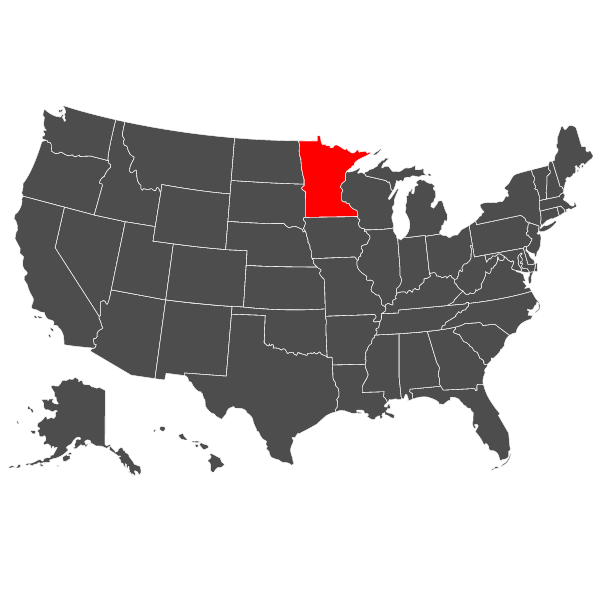Minnesota Franchise Law
Buying and Selling franchise opportunities in Minnesota
Growth through franchising
Franchising is an explosive growth concept that benefits both buyers and sellers. The seller, or franchisor, develops a system for delivering products or services under a single brand. The franchisor benefits by expanding their brand without the level of capital required to open company stores in exchange for a cut of the revenue (the “royalty”). The buyer, or franchisee, benefits by purchasing a “business in a box” with processes and systems to follow, along with support in implementing the know-how.
The key to a good franchise relationship is mutually beneficial success. The royalty and fees are the cost of doing business. Of course, there are bad actors in any business. To protect would-be franchisees, the Federal Trade Commission oversees the federal Franchise Rule. Certain states, like Minnesota, supplement these rules and require the state’s approval prior to making any franchise offerings in the state.
The Minnesota Franchise Act
In Minnesota, franchise opportunities are regulated by the Minnesota Franchise Act and enforced through state adminstrative. Minnesota is a franchise registration state.

The Minnesota Department of Commerce-Securities Section ensures that both franchisor and franchisee are protected from unscrupulous operators in the state and consumers are protected from fraudulent franchise operations as outlined by the Minnesota Statute 80C.01 and Minnesota Rules Chapter 2860, NASAA Franchise Registration and Disclosure Guidelines, and the Federal Trade Commission’s Franchise Rule.
Transparency in Franchise Approval
Minnesota maintains one of the best, if not the best, online platforms for the public the view franchise filings. The platform is easily accessible online and contains current and past year FDD filings, including easy to track redline versions which show changes instituted by franchisors over the years. This information can be valuable to franchisors in evaluating their competition and to franchisees in evaluating both the franchisor and its competitors. Valuable information can be located to allow for even more through diligence in evaluating an opportunity and knowledge can be gained to use in negotiations. Anyone can access the Minnesota franchise search platform for free online. This database contains each public record associated with any franchise offering that is required to register and submit disclosure documents in Minnesota.
Registering a franchise Minnesota
Minnesota makes franchise registration an easily manageable process with online filing. In order to gain approval to offer franchises in Minnesota, franchisors must submit:
Uniform Franchise Registration Application (Form A, includes a notarized Certification Statement)
Franchiser’s Costs and Sources of Funds (Form B)
Uniform Consent to Service of Process (Form C, must be notarized, naming Minnesota Commissioner of Commerce)
Franchise Seller Disclosure Form (Form D)
Consent of Accountant (Form F, must be on accountant’s letterhead)
Franchise Disclosure Document (The “FDD” must be prepared in accordance with NASAA’s Franchise Registration and Disclosure Guidelines and must follow any applicable commentary.)
The initial filing fee (Currently, $400).
You can review Minnesota’s easy to follow instructions by clicking here.
Minnesota requires annual registration. Franchise renewal filings require a redline comparison between the new FDD and the prior FDD. Minnesota also requires updates to the registration, or amendments, when certain changes occur in the franchisor organization or its disclosure documents.
Minnesota Franchise Law Protections for Franchisees
Minnesota helps protect franchisees by:
- Prohibiting franchisors from requiring franchisees to bring claims (lawsuits) outside of the state of Minnesota.
- Requiring notification and an opportunity to cure before termination.
- Ensuring transfer requests are not unreasonably refused.
- Requiring Franchisors to protect their trademark.
- Prohibiting certain general releases, questions, agreements, and disclaimers.
Questions about Franchising generally?
Federal Franchise Law Applies in All States

Federal Franchise Legal Requirements
The federal Franchise Rule establishes the minimum requirements for franchisors to follow when offering or selling franchises in the United States. Federal laws apply in every state regardless of where the franchisor or franchisee is located. Federal laws prescribe the content of disclosures and establish the minimum rules surrounding the sales process. However, there is no federal franchise registration process or requirement. Thus, the federal government does not review the content of a franchisors disclosure document. Enforcement is largely left to state regulators and franchisees who bring law suits.
Franchise Registration and Disclosure
A franchise opportunity can only be offered through disclosure of a franchise disclosure document (the “FDD”). Thus, the FDD is the primary legal document required by all franchisors. This disclosure document must be prepared before offering franchise opportunities in any state and before the registration process can begin. Each FDD contains 23 separate ares of disclosure known as “Items”. The disclosure includes a standard franchise agreement, along with any other contracts required to be signed by the franchisee to begin operating a franchised business. The federal requirements and content of the disclosure document are more thoroughly explained in our federal law resource guide.
Purpose of the FDD
As a franchisor, maintaining compliance and establishing expectations is essential to building a successful franchise system. The FDD discloses aspects of the business and establishes the ground rules for the franchise relationship. As a prospective buyer, the Items in the FDD are designed to help you make an informed purchasing decision before you sign a franchise agreement. Understanding the contents is essential when conducting due diligence.
What is a Franchise?
These three elements make a franchise a franchise
Right to Operate
The buyer will obtain the right to operate a business that is identified or associated with the seller’s trademark, or to offer, sell, or distribute goods, services, or commodities that are identified or associated with the franchisor’s trademark

Degree of control
The seller will exert or has authority to exert a significant degree of control over the buyer’s method of operation, or provide significant assistance in the buyer’s method of operation



Exchange of money
As a condition of obtaining or commencing operation of the business, the buyer makes a required payment or commits to make a required payment to the seller or its affiliate. In Virginia, this includes any direct or indirect payment of at least $500.
Franchising Occurs When An Oral Or Written Deal Satisfies Each of These Elements
The Role of a Franchise Attorney
helping Franchise Buyers
- Developing and implementing a plan to franchise
- Drafting the franchise disclosure document (the “FDD”)
- Drafting the franchise agreement and all franchise contracts
- Securing franchise registration in across the United States.
- Disclosing prospects and sending franchise agreements
- Managing and resolving franchise disputes
- Providing day-to-day franchise legal support
Helping Franchise Sellers
- Nationwide FDD review
- Nationwide franchise agreement review
- Comprehensive franchise legal review report
- Consultation and legal advice on rights and obligations
- Consultation and negotiation on business legal terms
- Direct dispute resolution
- Day-to-day legal support
